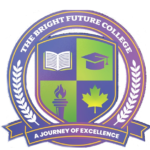Addiction and Community Support Worker

The Addiction and Community Support Worker Diploma at Brightfuture College prepares students for a rewarding career in supporting individuals facing addiction and mental health challenges. This program offers in-depth training in counseling techniques, case management, and community outreach. Students will gain the practical skills needed to provide guidance, support, and resources to individuals in recovery, while promoting overall community well-being. Graduates will be ready to work in a variety of settings, including rehabilitation centers, social service agencies, and community organizations.
Unlock your future with our cost-effective Medical Office Assistant Diploma – an affordable investment in a rewarding career and a journey of excellence.
This program provides essential skills and comprehensive knowledge to make a meaningful impact in the community. With a focus on practical training and real-world experience, you’ll be well-prepared for a variety of career opportunities in social services.
Program Overview
The Addiction and Community Support Workers Diploma program provides students with foundational knowledge in social and community services, addiction models, and treatment processes. It emphasizes key skills such as interviewing, counseling, and developing action plans for clients. The curriculum covers specialized topics including social stigma, family dynamics, psychological aspects of addiction, and relapse prevention.
Program Highlights: Addiction and Community Service Worker
• Interpersonal Skills: Develop essential skills for effective community work.
• Comprehensive Knowledge: Gain in-depth understanding of the socio-psychological dimensions of addiction, relapse prevention, and intervention.
• Interviewing and Counseling Techniques: Learn to evaluate clients’ emotional and health-related needs.
• Education on Key Topics: Study social stigma, family dynamics, and psychological aspects of addiction.
• Action Plan Development: Focus on creating tailored action plans for vulnerable populations.
• Microsoft Windows Applications: Receive instruction in Word, Excel, and PowerPoint.
• Practical Experience: Participate in a four-week Practicum in real-world settings.
• Professional Opportunities: Prepare for employment in group homes, outreach services, residential treatment facilities, domestic violence shelters, and social service agencies.
Career Opportunities
Addiction and Community Support Workers can find opportunities in:
• Social service agencies
• Mental health agencies
• Group homes and shelters
• Substance abuse centers
• School boards
• Correctional facilities
These roles involve supporting individuals with addiction and mental health challenges, developing support plans, and collaborating with other professionals.
Earnings Range
Based on statistics from the Government of Alberta and the Government of Canada, the salary range for Addiction and Community Support Workers in Alberta is:
• Annual Salary Range: $34,840 to $78,104
• Median Annual Salary: Approximately $50,400
These figures can vary based on experience, location, and specific employers.
Admission Requirement:
Standard Admission
Students must meet ONE of the following criteria:
1. Alberta high school diploma, verified by transcript or non-Alberta equivalent, for students who are under 18 years of age
2. Successful completion of the General Equivalency Diploma(G.E.D) with minimum 450 marks in LA and Maths.
Students are required to have a successful interview with the school advisor.
Mature Admission
Students must meet the following criteria:
1. Must be 18 years or older.
2. Students are required to pass the mandated Wonderlic Basic Skills Test (WBST) to demonstrate the necessary competency with a minimum score of 300 out of 500 for admission.
3. Students are required to have a successful interview with the school advisor.
International Student Admission
International students, particularly those who have attained their high school diploma outside of Canada, are required to have their transcripts authenticated by either IQAS or WES in order to qualify for admission to the diploma program.
Proof of English Language Proficiency for both Standard and Mature Admission:
Applicants who haven't completed high school in Canada must demonstrate English proficiency by attaining a minimum Canadian Language Benchmark (CLB) of 7 for entry into the diploma program. Additionally, students whose first language isn't English are required to take the International English Language Testing System (IELTS) and achieve a score of at least 6 in all four sections of the test alongside meeting the CLB Level 7 requirement.
Course Outline
Microsoft Office: 4 Weeks/ 80 Hours
In this Microsoft Office course, students will be guided through Windows Operating Systems and a range of computer applications, including Microsoft Office tools like Word, Excel, Outlook, and PowerPoint. The curriculum focuses on developing proficiency in using these applications and tailoring the display of toolbars and on-screen elements. Moreover, students will gain valuable insights into crafting business documents and electronic presentations.
Psychology Fundamentals: 4 Weeks/80 Hours
This course provides students with a foundational understanding of psychology terminology and concepts, which they can directly apply in real-world scenarios. Delving into the lifespan from infancy to late adulthood, students explore the associated challenges and developmental milestones. They gain insights into both physical and emotional development across different stages of life, as well as the social dynamics encountered throughout. By familiarizing themselves with psychology fundamentals, students develop a deeper comprehension of human behavior and its applications.
Ethical Principles and Regulatory Guidelines: 2 Weeks /40 Hours
The Ethics for Addiction and Community Support Workers course offers vital training in ethical principles and practices, specifically tailored to the field by integrating the Alberta College of Social Workers' Standard of Practice and the Canadian Association of Social Workers' Code of Ethics. Through interactive sessions and case studies, participants navigate complex ethical dilemmas, uphold professional boundaries, and advocate for the rights of individuals in need of support. The curriculum places a strong emphasis on self-care, collaboration, and cultural competence, ensuring that learners are equipped with the necessary skills to provide effective and ethical assistance to diverse communities
Substance Use Disorder and Mental Health: 3 weeks/60 hours
Students will gain a comprehensive understanding of brain development and its correlation with addiction and mental health. Through interactive learning methods, they'll grasp how experiences during sensitive developmental periods shape the brain, influencing susceptibility to physical and mental illnesses, including addiction. The course covers topics such as the negative impacts of stigma surrounding addiction, historical views, and misconceptions, alongside the fundamentals of pharmacology, including the effects of psychoactive drugs on the mind and body. Additionally, students will examine the historical origins of drug policies and their impact on marginalized communities.
High Risk Population: 4 weeks/80 hours
Students explore high-risk populations, understanding the challenges and experiences they face. Topics include domestic violence, sexual assault, child abuse, and vulnerabilities among groups such as First Nations, seniors, individuals with disabilities, and marginalized communities. Through discussions and exploration, students uncover systemic injustices and discrimination, gaining insights into the social, economic, and environmental factors contributing to vulnerability. This equips them to advocate for and support these communities effectively.
Working with families: 4 weeks/80 hours
In this course, students embark on a comprehensive exploration of family dynamics and their implications for therapy. They delve into common dysfunctional patterns, therapeutic approaches, and the utilization of family mapping tools. Additionally, they examine how substance use affects families and the vital role of family involvement in treatment. Topics encompass historical and contemporary concepts of family life in Canada, various family types, common transitions, and dynamics of healthy relationships. Moreover, students gain insights into critical issues affecting families, such as poverty and violence, while developing a solid understanding of family therapy principles.
Teamwork and Collaboration Skills 2 weeks/40 hours
This course provides a thorough overview of group process and practice, encompassing crucial aspects like group leadership, member roles, effective leadership traits, and essential skills. Students will grasp the fundamentals of facilitating group work, including dynamics and communication techniques. They'll acquire vital skills for effective group facilitation and managing potential challenges. Furthermore, they'll explore strategies for fostering inclusive environments and employing consensus-building techniques.
Treatment and Intervention: 2 weeks/40 hours
The course will offer a comprehensive overview of drug abuse treatment, aiding students in comprehending their involvement in intake procedures and treatment planning. Additionally, they will gain insight into the diverse range of addiction treatments available, with a focus on the significance of identifying the most suitable approach for achieving successful recovery outcomes.
Trauma and Crisis Management 2 weeks/ 40 hours
In this course, students will delve into the acquisition of critical self-care skills crucial for professionals in the support work field. Additionally, they will engage in an in-depth exploration of trauma responses, gaining a comprehensive understanding of the various dimensions involved, including psychosocial, physical, cognitive, emotional, and behavioral aspects.
Community Resources and Network: 2 weeks/40 hours
This module will teach learners about the different resources available in the community to support people in need. In this course, learners explore the various resource groups such as addiction treatment centers, detox centers, assessment centers, counseling services, and Canadian Health Associations. They will also learn how to refer people to these resource centers.
Engagement Strategies and Counseling Approaches: 4 weeks/80 hours
In this module, students explore diverse interviewing techniques and the crucial role of effective communication. They learn to discern the attributes of verbal and non-verbal communication, as well as informative and persuasive speaking, vital for fostering professional relationships. Additionally, the course introduces students to foundational interviewing techniques like motivational interviews and brief interventions. Through an introduction to basic theory and skills essential for effective counseling, a micro-skills approach is employed. Role-play scenarios are utilized throughout the course, allowing students to practice and develop concrete competencies in interviewing and counseling.
Communication Fundamentals: 2 week/ 40 hours
In this course, students will develop essential skills in report writing tailored to Community Support Worker environments. They'll learn to craft various reports, including assessments, case notes, progress notes, and incident reports, while also understanding the formatting and content expectations for CSW-related correspondence like letters and emails. Through the course, students will enhance their ability to write with clarity, objectivity, and precision, utilizing language that is both appropriate and concise. Furthermore, the curriculum covers documentation methods crucial for professionals in the helping professions, alongside effective communication strategies vital for fostering and maintaining professional relationships in their practice.
Recovery Techniques and Preventive Interventions: 4 weeks/ 80 hours
In this course, students explore relapse prevention, recovery, and the Mental Health Professional's role in prevention and treatment. They investigate various strategies and techniques to prevent relapse, including identifying high-risk populations, implementing and evaluating prevention programs, and promoting healthier lifestyle choices across diverse settings and populations. Through modules on relapse prevention, intervention, and motivational interviewing, students analyze underlying causes, develop expertise to mitigate relapse effects, and learn techniques to inspire and support clients throughout their recovery journey.
Career Assistance: 1 week/20 hours
Within this module, students will receive comprehensive instruction on the art of crafting an impressive resume and gain insights into crucial aspects of the job search process. The course goes beyond the basics, actively preparing learners for various employment opportunities by fostering the development of essential marketing tools and honing interview skills. Participants will emerge well-equipped and confident in navigating the competitive job market.
Practicum: 4 weeks/80 hours
During the Practicum phase, students will engage in a supervised and immersive practical application of the theoretical knowledge acquired in their studies. This real-world workplace setting provides students with a hands-on experience, allowing them to apply and further solidify the theoretical concepts learned throughout the course. Through this experiential learning opportunity, students gain valuable insights and practical skills that bridge the gap between academic understanding and real-world application.
Community Service Workers Certifications
In this course, students will fulfill the industry’s most commonly required certifications.
First Aid and CPR Level C: This course caters to both the general public and workplace environments, fulfilling the first aid requirements specified by the Canada Labor Code Standard First Aid and Licensed Child and Adult Care Facilities.
Applied Suicide Intervention Skills Training (ASIST): ASIST is a program designed to train individuals in suicide intervention skills. It teaches participants to recognize signs of suicide risk, engage with those in crisis, and connect them with appropriate support. Developed by Living Works, ASIST provides practical training to empower individuals to prevent suicide effectively.
Nonviolent Crisis Intervention (NCI): This course teaches participants to identify early warning signs of crises and employ verbal and non-verbal techniques to prevent violent confrontations. Non-violent crisis intervention enables early recognition of distress signals and the application of suitable strategies to address situations before they escalate into crises.
Curriculum
- 15 Sections
- 5 Lessons
- 44 Weeks
- Microsoft Office: 4 Weeks/ 80 HoursIn this Microsoft Office course, students will be guided through Windows Operating Systems and a range of computer applications, including Microsoft Office tools like Word, Excel, Outlook, and PowerPoint. The curriculum focuses on developing proficiency in using these applications and tailoring the display of toolbars and on-screen elements. Moreover, students will gain valuable insights into crafting business documents and electronic presentations.2
- Psychology Fundamentals: 4 Weeks/80 HoursThis course provides students with a foundational understanding of psychology terminology and concepts, which they can directly apply in real-world scenarios. Delving into the lifespan from infancy to late adulthood, students explore the associated challenges and developmental milestones. They gain insights into both physical and emotional development across different stages of life, as well as the social dynamics encountered throughout. By familiarizing themselves with psychology fundamentals, students develop a deeper comprehension of human behavior and its applications.2
- Ethical Principles and Regulatory Guidelines: 2 Weeks /40 HoursThe Ethics for Addiction and Community Support Workers course offers vital training in ethical principles and practices, specifically tailored to the field by integrating the Alberta College of Social Workers' Standard of Practice and the Canadian Association of Social Workers' Code of Ethics. Through interactive sessions and case studies, participants navigate complex ethical dilemmas, uphold professional boundaries, and advocate for the rights of individuals in need of support. The curriculum places a strong emphasis on self-care, collaboration, and cultural competence, ensuring that learners are equipped with the necessary skills to provide effective and ethical assistance to diverse communities2
- Substance Use Disorder and Mental Health: 3 weeks/60 hoursStudents will gain a comprehensive understanding of brain development and its correlation with addiction and mental health. Through interactive learning methods, they'll grasp how experiences during sensitive developmental periods shape the brain, influencing susceptibility to physical and mental illnesses, including addiction. The course covers topics such as the negative impacts of stigma surrounding addiction, historical views, and misconceptions, alongside the fundamentals of pharmacology, including the effects of psychoactive drugs on the mind and body. Additionally, students will examine the historical origins of drug policies and their impact on marginalized communities.0
- High Risk Population: 4 weeks/80 hoursStudents explore high-risk populations, understanding the challenges and experiences they face. Topics include domestic violence, sexual assault, child abuse, and vulnerabilities among groups such as First Nations, seniors, individuals with disabilities, and marginalized communities. Through discussions and exploration, students uncover systemic injustices and discrimination, gaining insights into the social, economic, and environmental factors contributing to vulnerability. This equips them to advocate for and support these communities effectively.0
- Working with families: 4 weeks/80 hoursIn this course, students embark on a comprehensive exploration of family dynamics and their implications for therapy. They delve into common dysfunctional patterns, therapeutic approaches, and the utilization of family mapping tools. Additionally, they examine how substance use affects families and the vital role of family involvement in treatment. Topics encompass historical and contemporary concepts of family life in Canada, various family types, common transitions, and dynamics of healthy relationships. Moreover, students gain insights into critical issues affecting families, such as poverty and violence, while developing a solid understanding of family therapy principles.0
- Teamwork and Collaboration Skills 2 weeks/40 hoursThis course provides a thorough overview of group process and practice, encompassing crucial aspects like group leadership, member roles, effective leadership traits, and essential skills. Students will grasp the fundamentals of facilitating group work, including dynamics and communication techniques. They'll acquire vital skills for effective group facilitation and managing potential challenges. Furthermore, they'll explore strategies for fostering inclusive environments and employing consensus-building techniques.0
- Treatment and Intervention: 2 weeks/40 hoursThe course will offer a comprehensive overview of drug abuse treatment, aiding students in comprehending their involvement in intake procedures and treatment planning. Additionally, they will gain insight into the diverse range of addiction treatments available, with a focus on the significance of identifying the most suitable approach for achieving successful recovery outcomes.0
- Trauma and Crisis Management 2 weeks/ 40 hoursIn this course, students will delve into the acquisition of critical self-care skills crucial for professionals in the support work field. Additionally, they will engage in an in-depth exploration of trauma responses, gaining a comprehensive understanding of the various dimensions involved, including psychosocial, physical, cognitive, emotional, and behavioral aspects.0
- Community Resources and Network: 2 weeks/40 hoursThis module will teach learners about the different resources available in the community to support people in need. In this course, learners explore the various resource groups such as addiction treatment centers, detox centers, assessment centers, counseling services, and Canadian Health Associations. They will also learn how to refer people to these resource centers.0
- Engagement Strategies and Counseling Approaches: 4 weeks/80 hoursIn this module, students explore diverse interviewing techniques and the crucial role of effective communication. They learn to discern the attributes of verbal and non-verbal communication, as well as informative and persuasive speaking, vital for fostering professional relationships. Additionally, the course introduces students to foundational interviewing techniques like motivational interviews and brief interventions. Through an introduction to basic theory and skills essential for effective counseling, a micro-skills approach is employed. Role-play scenarios are utilized throughout the course, allowing students to practice and develop concrete competencies in interviewing and counseling.0
- Communication Fundamentals: 2 week/ 40 hoursIn this course, students will develop essential skills in report writing tailored to Community Support Worker environments. They'll learn to craft various reports, including assessments, case notes, progress notes, and incident reports, while also understanding the formatting and content expectations for CSW-related correspondence like letters and emails. Through the course, students will enhance their ability to write with clarity, objectivity, and precision, utilizing language that is both appropriate and concise. Furthermore, the curriculum covers documentation methods crucial for professionals in the helping professions, alongside effective communication strategies vital for fostering and maintaining professional relationships in their practice.0
- Recovery Techniques and Preventive Interventions: 4 weeks/ 80 hoursIn this course, students explore relapse prevention, recovery, and the Mental Health Professional's role in prevention and treatment. They investigate various strategies and techniques to prevent relapse, including identifying high-risk populations, implementing and evaluating prevention programs, and promoting healthier lifestyle choices across diverse settings and populations. Through modules on relapse prevention, intervention, and motivational interviewing, students analyze underlying causes, develop expertise to mitigate relapse effects, and learn techniques to inspire and support clients throughout their recovery journey.0
- Career Assistance: 1 week/20 hoursWithin this module, students will receive comprehensive instruction on the art of crafting an impressive resume and gain insights into crucial aspects of the job search process. The course goes beyond the basics, actively preparing learners for various employment opportunities by fostering the development of essential marketing tools and honing interview skills. Participants will emerge well-equipped and confident in navigating the competitive job market.0
- Practicum: 4 weeks/80 hoursDuring the Practicum phase, students will engage in a supervised and immersive practical application of the theoretical knowledge acquired in their studies. This real-world workplace setting provides students with a hands-on experience, allowing them to apply and further solidify the theoretical concepts learned throughout the course. Through this experiential learning opportunity, students gain valuable insights and practical skills that bridge the gap between academic understanding and real-world application.0
You might be intersted in
-
16 Students
-
18 Weeks





